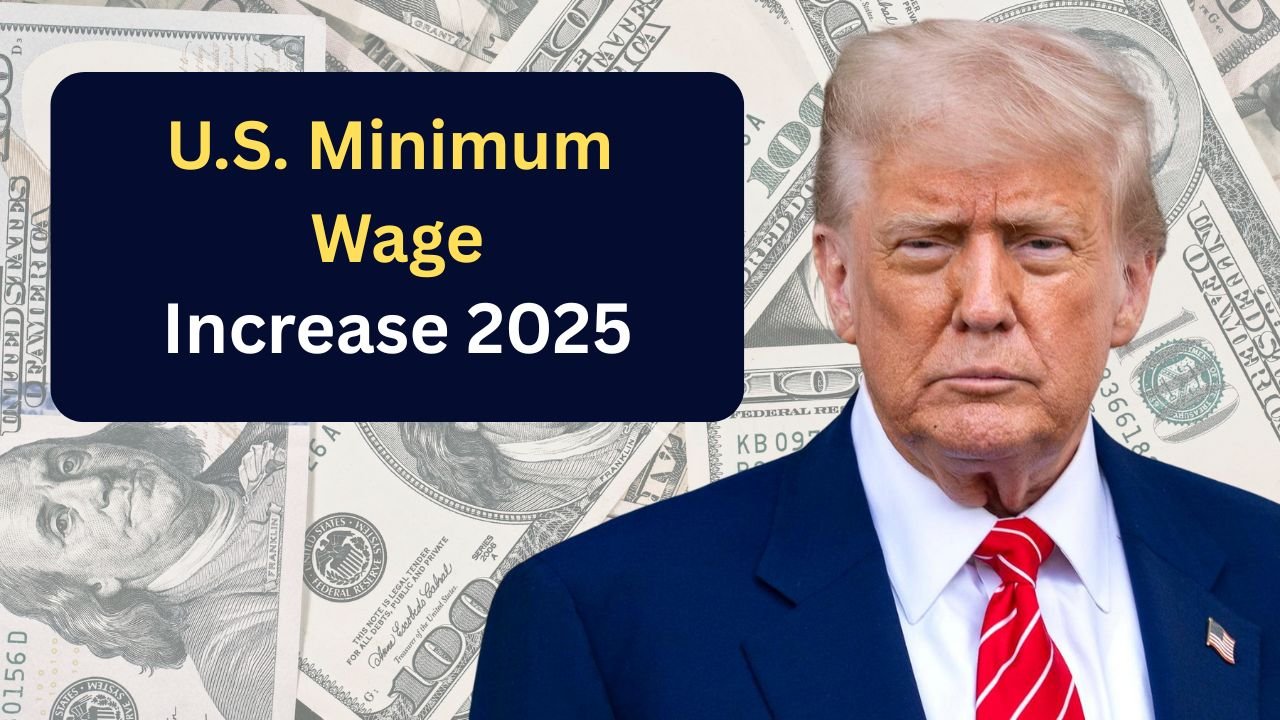Beginning September 30, 2025, thousands of workers across Florida will see their pay rise as part of the state’s multi-year minimum wage plan. The Florida minimum wage will increase from $13 to $14 per hour, with tipped workers’ base pay increasing from $9.98 to $10.98.
This increase is part of Amendment 2, a constitutional mandate passed by voters in 2020, which gradually raises Florida’s minimum wage by $1 per year until it reaches $15/hour in 2026.
The goal is simple: to help workers manage rising living costs while giving employers time to adjust payroll budgets gradually.
Table of Contents
US Minimum Wage Hike 2025 Overview
| Department | Florida Department of Economic Opportunity |
|---|---|
| Program Name | US Minimum Wage Increase 2025 |
| Effective Date | September 30, 2025 |
| Country | United States (Florida) |
| New Minimum Wage | $14/hour (Non-Tipped Workers) |
| Base Pay for Tipped Workers | $10.98/hour |
| Next Target | $15/hour (2026) |
| Beneficiaries | Low-wage and tipped workers in Florida |
| Category | Labor & Employment |
| Official Websites | www.dol.gov |
Understanding US Minimum Wage Plan
Florida’s wage hike is part of a structured and predictable plan introduced through a 2020 constitutional amendment.
Here’s the yearly progression:
| Year | Effective Date | Minimum Wage (Non-Tipped) | Tipped Base Wage |
|---|---|---|---|
| 2021 | September 30 | $10 | $6.98 |
| 2022 | September 30 | $11 | $7.98 |
| 2023 | September 30 | $12 | $8.98 |
| 2024 | September 30 | $13 | $9.98 |
| 2025 | September 30 | $14 | $10.98 |
| 2026 | September 30 | $15 | $11.98 |
After 2026, annual adjustments will be tied to inflation and the Consumer Price Index (CPI), ensuring wages automatically keep up with the cost of living without new legislation.
Impact on Florida Workers
The wage hike represents a major step forward for low-income and tipped workers.
Key Benefits:
-
Increased Take-Home Pay: A direct raise of $1/hour translates into approximately $2,080 more per year for full-time workers.
-
Higher Job Satisfaction: Improved earnings often result in better morale and reduced turnover.
-
Enhanced Spending Power: More disposable income could boost local retail and service industries.
-
Fair Pay for Tipped Workers: Ensures they earn at least the full state minimum wage even when tips fall short.
“This wage increase isn’t just an economic adjustment — it’s a lifeline for thousands of families facing rising rents and grocery costs,” said Dr. Monica Rivera, labor economist at the University of Central Florida.
Impact on Employers
For business owners, the 2025 wage increase brings both challenges and opportunities.
Employer Adjustments:
-
Update payroll systems and post new wage rate notices by September 30.
-
Review pricing strategies and staffing budgets to offset rising labor costs.
-
Train HR and finance teams to handle tipped wage compliance.
-
Prepare for potential wage compression — when entry-level raises prompt pay increases for experienced workers.
“Small businesses might initially feel the strain, but happier, better-paid workers can improve productivity and retention,” notes Karen Liu, HR Consultant, Florida Chamber of Commerce.
Future Outlook: The Road to $15 and Beyond
This year’s increase to $14 is not the final step. Florida’s minimum wage will hit $15/hour in 2026, after which future increases will be indexed to inflation.
This approach ensures wages rise in step with the cost of living, avoiding the need for future ballot initiatives or abrupt policy changes.
Long-Term Benefits:
-
Greater financial stability for households.
-
Predictable payroll planning for businesses.
-
Steady reduction in income inequality.
“Linking future wage increases to inflation means workers won’t fall behind while giving employers predictability,” explained James Keller, Senior Policy Advisor, Department of Economic Opportunity.
Tipped vs. Non-Tipped Workers: What Changes
The 2025 update clearly distinguishes between tipped and non-tipped employees:
| Worker Type | Base Pay (2024) | Base Pay (2025) | Total Minimum Earnings Required |
|---|---|---|---|
| Non-Tipped Workers | $13/hr | $14/hr | $14/hr |
| Tipped Workers | $9.98/hr | $10.98/hr | $14/hr (tips + base pay) |
Employers are legally required to ensure that tipped workers earn at least the full $14/hour, even if tips are low.
Economic and Social Impact
The 2025 wage hike carries wide-reaching effects across Florida’s economy:
-
Boost to Local Economies: Workers with higher wages spend more locally.
-
Pressure on Small Businesses: Some may reduce hours or raise prices to adapt.
-
Wage Ripple Effect: Higher base pay may prompt raises in other pay brackets.
-
Reduced Inequality: Supports working families and combats wage stagnation.
“It’s a balancing act,” says Laura Grant, senior researcher at the Economic Policy Institute. “Florida’s gradual increases strike a better equilibrium between supporting workers and sustaining business growth.”
Latest Updates
As of September 2025, Florida’s new $14/hour minimum wage rate is officially in effect. Workers should check their pay stubs in early October to ensure the new rate has been applied.
Employers must also update their workplace labor law posters and notify staff of the change.
For official verification, visit:
FloridaJobs.org Minimum Wage Page
FAQs
1. What is the new minimum wage from September 30, 2025?
The minimum wage in Florida will rise to $14 per hour for non-tipped workers.
2. What about tipped employees?
Tipped workers will receive a base pay of $10.98/hour, and total pay (including tips) must equal at least $14/hour.
3. Why does Florida increase its minimum wage every year?
A 2020 constitutional amendment requires a $1 annual increase until wages reach $15/hour in 2026.
4. Will wages rise after 2026?
Yes, annual increases will be tied to inflation and adjusted automatically.
5. Do employers have to update payroll systems?
Yes, all employers must update pay rates and wage posters by September 30, 2025.
6. What if an employer doesn’t comply?
Employees can file complaints with the Florida Department of Economic Opportunity or the U.S. Department of Labor.

